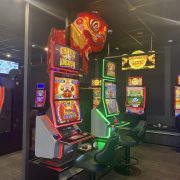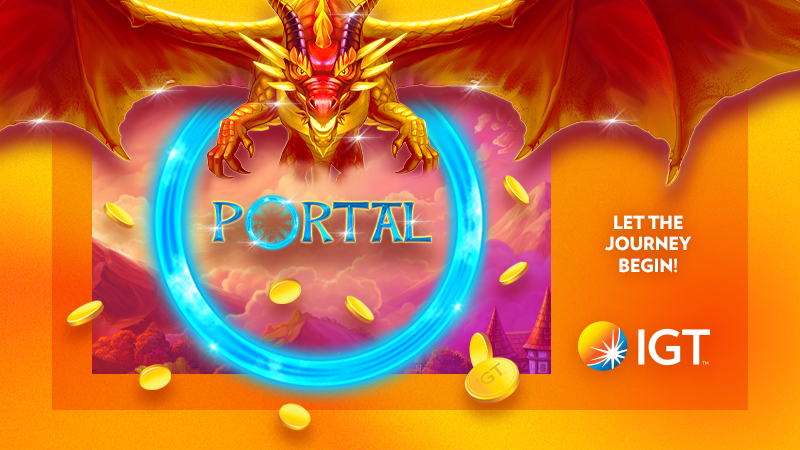WHAT RESEARCH SHOULD WE BE DOING?
I came across an article, written by Deb Hilgeman (Ph.D.) on behalf of our friends at Raving Consulting in the USA. The article reports on the first Annual Tribal Gaming National Marketing Survey and covers Tribal/Native American Casinos from all areas of the U.S. and range in size from mega resorts to small properties with less than 250 machines. The tribal casinos in the USA are the most similar to our clubs in Australia, with regular customers, who often live locally, and travel to the venue several times in a week, for different promotions and entertainment options.
The article prompted me to take a fresh look at data collection that is relevant to our Australian club and hotel gaming/marketing business, and I was shocked at how much information we have stopped collecting. For many of us some of these vital areas of research have dropped off our radar, and this article serves as a good reminder that customers are always at the heart of our business and their opinion, and habits, are vitally important to our success. The Drop Ed.
One of the questions that was asked the 53 venues participating in the survey was what types of market research they’re conducting.
Database Analysis
This is a type of research that uses information you’ve collected from players to perform statistical analysis so that you can better understand your customers and their behaviour. Almost all venues are analysing the data from gaming and other business transactions (restaurants, entertainment, etc.). This research is typically performed on an ongoing basis.
Benefits: Having accurate database analysis is what makes many marketing programs possible. It’s the basis of mail programs, club tiering, and much more.
Australia: Many clubs and hotels still collect this information regularly. General demographic information and facility preference is important to our understanding of our customers usage of our venue and promotional offerings. There is an argument for expanding this into more sophisticated areas that can be useful for marketing e.g. what days/times are different tiers/ages gaming, what suburb are they coming from, how regularly are they visiting, etc?
Guest Satisfaction Survey
This is one of the best ways to listen to the all-important Voice of the Customer (VOC) by measuring how your customers rank every aspect of your property. These are a report card for your property. Guest Satisfaction Surveys can pinpoint problems and measure how serious they are, and also show you what your customers rank highly so that you know where to focus your efforts. Some casinos are conducting Satisfaction Surveys by using online software and in-house staff, but most retain outside resources.
Benefits: This type of survey can reduce customer churn, increase customer lifetime value, and reduce negative word-of-mouth.
Australia: I can’t remember the last time I saw a club in Australia getting customers to complete a customer satisfaction survey. An online survey opportunity for customers, prompted by a QR code to rank our service and facilities, would be quick and easy and highlight areas that require attention.
Competitive Analysis:
Knowing what your competitors are doing, how they’re doing it, and how well they are doing it compared to your property is vital information. This analysis determines their strengths and weaknesses relative to your property’s. Most casinos do at least some monitoring of the competition inhouse – signing up for their direct mail, clipping ads, and checking out their social media and promotions.
Benefits: Formulate a better marketing strategy and plan by leveraging what your property is doing best and improve key areas that are your weaknesses.
Australia: Often this is a task that is undertaken when we have a strategic planning session coming up. In many cases it hasn’t been updated for some time.
Feedback Surveys
Feedback surveys cover a range of categories, but the common thread is that they are all designed to gather feedback from users of products, services, experiences and programs. For clubs, this might be a post-promotion evaluation, loyalty/rewards club evaluation, or just about anything that you’re doing that can be evaluated by your customers.
Benefits: Knowing how your customers evaluate your marketing initiatives allows you to adjust and improve, which increases efficiency and profitability.
Australia: We tend to take feedback regularly from the “table of knowledge” but often don’t widen the source of information as much as we should.
Branding & Awareness
Branding Surveys: Attitude, Awareness & Usage (AAU), whatever you call them, these surveys take stock of your market and give you an opportunity to thoroughly review your product or service within its marketplace so that you can understand its appeal, strengths, weaknesses, and any gaps in the offering. It also gives you insights regarding brand perception, and helps you evaluate how your product is known and perceived within the market.
Benefits: This measures how well your brand is performing against competitors, as perceived by your customers, so you can increase performance in areas that count with customers.
Australia: For us, this falls in the category of “feedback surveys” and “competitive analysis”. Either way it is something that we have stopped doing regularly that provides vital information to move our promotions, marketing, branding, community engagement and loyalty programs forward.
Employee Engagement Surveys
This type of survey gained popularity in the 1990s to measure a relationship that goes beyond employee satisfaction; an “engaged employee” is one who is fully absorbed in and enthusiastic about their work and takes positive action to further the organisation’s reputation and interests. An engagement survey is usually done annually or every other year.
Benefits: Knowing how to increase engagement leads to employees who care more, are more productive, give better service, and even stay in their jobs longer. All of that leads to happier customers, who buy more and refer more often, which drives sales and profits higher.
Australia: Again, this one has fallen off many a radar, but with staff so difficult to find and keep, and the costs of losing and replacing them, makes this an important research topic to invest some energy in.
Focus Groups
A focus group is a form of qualitative research in which a group of people are asked about their perceptions, opinions, beliefs and attitudes towards a product, service, concept, advertisement, idea or packaging. Quantitative research answers, “how many,” and qualitative research answers the “how” and “why.” The group members are carefully selected and are led through a specific agenda by a skilled moderator. Some venues conduct their own informal focus groups, while other venues bring in a professional research company.
Benefits: Quantitative research may indicate an area where you need to understand why you’re getting a certain result. Focus groups let you drill down and find out why you’re seeing certain findings. They can also be used to pretest your customers before making major changes.
Australia: Often undertaken every year, this needs to be done to keep up to date with your players confidence in your venue. It is also a great way to find out what your competitors are doing.
Adapted to an Australian audience from an article first appearing here >>>
Just How Much Research Are Casinos Doing? – Raving (betravingknows.com)









